Not exactly. Normally in situations like this, the contracts contain a bug that allows for 'legitimate' transactions to be executed in such a way that supposedly secure funds can be accessed and moved. Normally all high-profile blockchain projects have their contracts audited, but even a security audit can miss flaws in a badly-designed application, especially if the application depends on multiple contracts. This problem can also occur due to developers looking to rush 'gimmicky' products to market to secure a niche, instead of taking the time to audit first and launch after the appropriate due diligence.It says a vulnerability was found between contract calls - so when numbers are flying through space, from one account to another, they can set up a 'siphon' of sorts, to intercept that and store it in a different account? Am I understanding this correctly?
You are using an out of date browser. It may not display this or other websites correctly.
You should upgrade or use an alternative browser.
You should upgrade or use an alternative browser.
Role of Crypto/Cybercurrencies in the PTB's loss of control?
- Thread starter Ryan
- Start date
@iamthatis - came across this twitter thread yesterday detailing how the hack happened. I'm not going to pretend that I understand even a small part of the technical aspects of it (more like very big generalities for me in terms of understanding), but figured I'd post this here for you to look at for maybe a general understanding and any techy type person that wants to dig into it, etc.
@iamthatis - came across this twitter thread yesterday detailing how the hack happened. I'm not going to pretend that I understand even a small part of the technical aspects of it (more like very big generalities for me in terms of understanding), but figured I'd post this here for you to look at for maybe a general understanding and any techy type person that wants to dig into it, etc.
I'm at a kindergarten level when it comes to crypto. So this is all above my head. But I'm interested to learn. I have the basic grasp of blockchain, open ledger technology, and how algorithms are used to mine and generate value. I only have a basic understanding of basic supply and demand classical economics, and am still figuring out how the big shiny casino of financial markets work. I have been reading Michael Hudson's blog and found it pretty enlightening, because he tells the tale from the perspective of petrodollar-based super-imperialism. So through his interviews, I'm working on the 'basic economics' side of things.
I have no nuanced understanding of the crypto world. Is there any resource you or @Ryan can point me towards that would be able to help me out with this? Sort of like a 'Crypto for Dummies'?
I always thought crypto and bitcoin in a way reminds me of the anonymous Rosicrucian manifesto Fama Fraternitatis, which you could say brought about a pretty big change into how people think, bringing science and maths to the forefront, basically were we are today. Both are anonymous, there are potential suspects of who wrote/created it, just like the Fama. And both seems to be slowly bringing great change to the world, Central Bank Digital Currency (CBDC) are coming. And isn't money the foundation of how the deep state works, how for example JP Morgan wanted to charge electricity and Tesla wanted it for the benefit of the world. Didn't little greys visit Tesla during his life time?
I will think about this. No one source comes to mind right now in terms of crypto. I started to learn about cryptos starting in 2016 (slowly at first) and just have continued to learn via reading various perspectives on them and also through many different youtubers, etc. It really is a big topic that could consume all of your time 24/7. Same with learning "how the big shiny casino of financial markets work." I started that journey in 2004 or so in terms of finding and learning from the alternative precious metals crowd. In the past I had read a good bit of things online from Michael Hudson and from what I remember he is pretty good. My favorite person wtih respect to that type of crowd (and he has talked about crypto some over the last couple years) is Rob Kirby - Kirby Analytics - Home It has be a long, long time since I subscribed to his newsletter and I don't think he does that many interviews or writes much nowadays. More recent interviews I have seen available I find worth my time from time to time to get an update on his perspective.Is there any resource you or @Ryan can point me towards that would be able to help me out with this? Sort of like a 'Crypto for Dummies'?
I read this article a few times in 2018. I think it likely falls toward crypto being a possible solution that can be co-opted, but as Scottie pointed out earlier in the thread, and how I see things, crypto by itself being a solution is unlikely to be the case. But it did kind of open my mind a great deal in terms of what Bitcoin and crypto are. I should read it again here soon, just to see what my fuller take on crypto is with respect to the article. Bitcoin Doesn't Exist - The Full Story - The Automatic Earth
Hello, sticking to the ethos of the title of the thread “role of crypto in the PTB’s loss of control”:
Allow me to introduce: HEX
Hex is an ERC20 DEFI coin (which means a coin that has a decentralized finance utility - hence de-fi) and ERC20 means that it lives on the Ethereum blockchain (for now).
Hex is almost 2 years old now and has went up 3000x (300,000% !!!!) from all time low, currently standing at $0.18.
The idea of the coin is to replicate a bank certificate of deposit where you deposit some x amount for x number of days/months/years and earn interest.
The cool thing about it is that it is a trustless system with 0 counter-party risk, which means that you are dealing directly with the blockchain for proof os stake rewards and NOT another entity (such as coin lending sites blockfi and Celsius who take your coins and give you interest)
The coin is listed on:
Nomics.com
Interesting sites:
Hex.com
Hexdailystats.com
Lookintohex.com
YouTube channels:
Hex Clips
Richard Heart
I am SUPER apprehensive about recommending any coin so people don’t get recked. But this coin is something else so I’m wondering if anyone has heard of it? It is the number 3 coin (yes 3rd right after bitcoin and ethereum) in terms of market cap (currently at around $100 Billion).
The entire concept of it is like a big f u to the banks and financial gatekeepers including in the crypto space who take your coins and can do a rug-pull on you (exchange hacks etc...)
The founder Richard Heart is on YouTube and is quite a character seems very legitimate with his track record since the founding of the coin (and even before that).
I was amazed at how this coin is not listed on major sites and exchanges (like coinmarketcap.com and binance, coinbase etc..) and it turns out that it has been gatekept.
Let me explain:
The whole ethos of this coin is financial independence from any third party by holding your coins in YOUR wallet and THATS IT. Not your (wallet) keys not your coins.
It has grown phenomenally since December 2019 and has had ZERO hacks and 100% uptime, a testament -so far- of its security.
Richard Heart the founder is going to fork ethereum into a whole new coin called PulseChain in a month or two due to the ethereum high transaction fees. So when that fork happens hex (and most other ERC20 tokens) will get double their coins (the biggest airdrop in crypto history). So you’d have Hex on etherirum (eHEX) and hex on pulsechain (pHEX) in addition to the new pulsechain coin PLS).
Due to the above pulsechain fork and airdrop Hex is expected to rise in price and coin holders will get airdropped new coins on the new pulsechain.
Think of it: a truly decentralized finance coin that gives YOU back your sovereignty that is battle tested and hardened since December 2019.
I am only sharing my opinion with people who I care about and this is not financial advice. Do your own research. Bless you all.
Allow me to introduce: HEX
Hex is an ERC20 DEFI coin (which means a coin that has a decentralized finance utility - hence de-fi) and ERC20 means that it lives on the Ethereum blockchain (for now).
Hex is almost 2 years old now and has went up 3000x (300,000% !!!!) from all time low, currently standing at $0.18.
The idea of the coin is to replicate a bank certificate of deposit where you deposit some x amount for x number of days/months/years and earn interest.
The cool thing about it is that it is a trustless system with 0 counter-party risk, which means that you are dealing directly with the blockchain for proof os stake rewards and NOT another entity (such as coin lending sites blockfi and Celsius who take your coins and give you interest)
The coin is listed on:
Nomics.com
Interesting sites:
Hex.com
Hexdailystats.com
Lookintohex.com
YouTube channels:
Hex Clips
Richard Heart
I am SUPER apprehensive about recommending any coin so people don’t get recked. But this coin is something else so I’m wondering if anyone has heard of it? It is the number 3 coin (yes 3rd right after bitcoin and ethereum) in terms of market cap (currently at around $100 Billion).
The entire concept of it is like a big f u to the banks and financial gatekeepers including in the crypto space who take your coins and can do a rug-pull on you (exchange hacks etc...)
The founder Richard Heart is on YouTube and is quite a character seems very legitimate with his track record since the founding of the coin (and even before that).
I was amazed at how this coin is not listed on major sites and exchanges (like coinmarketcap.com and binance, coinbase etc..) and it turns out that it has been gatekept.
Let me explain:
- Most coins have “admin keys” which allow the creators to edit/change anything with the coins. Hex does NOT have admin keys (or so the founder claims- the code is open source so can be seen by anyone).
- Most coin listers live off of coin listing fees and referral links to coin trading sites that lure users in with high leverage trading opportunities which get people recked trading the market with little know-how). Hex goes completely against trading and even mining is all about holding and “staking”.
- It incentivizes delayed gratification through staking (just like a bank CD - certificate of deposit) the longer you stake the more interest you earn.
The whole ethos of this coin is financial independence from any third party by holding your coins in YOUR wallet and THATS IT. Not your (wallet) keys not your coins.
It has grown phenomenally since December 2019 and has had ZERO hacks and 100% uptime, a testament -so far- of its security.
Richard Heart the founder is going to fork ethereum into a whole new coin called PulseChain in a month or two due to the ethereum high transaction fees. So when that fork happens hex (and most other ERC20 tokens) will get double their coins (the biggest airdrop in crypto history). So you’d have Hex on etherirum (eHEX) and hex on pulsechain (pHEX) in addition to the new pulsechain coin PLS).
Due to the above pulsechain fork and airdrop Hex is expected to rise in price and coin holders will get airdropped new coins on the new pulsechain.
Think of it: a truly decentralized finance coin that gives YOU back your sovereignty that is battle tested and hardened since December 2019.
I am only sharing my opinion with people who I care about and this is not financial advice. Do your own research. Bless you all.
Some Hex stats:
Attachments
-
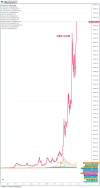 3356C862-8EB6-4C98-A3B4-DCBB248270FD.png166.6 KB · Views: 48
3356C862-8EB6-4C98-A3B4-DCBB248270FD.png166.6 KB · Views: 48 -
 CC411C54-6F16-497D-A0D9-FAAD5AC9F901.png50 KB · Views: 21
CC411C54-6F16-497D-A0D9-FAAD5AC9F901.png50 KB · Views: 21 -
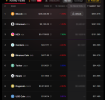 11D3301F-0E0D-414F-8D4C-16E197AB9BCD.png203.8 KB · Views: 35
11D3301F-0E0D-414F-8D4C-16E197AB9BCD.png203.8 KB · Views: 35 -
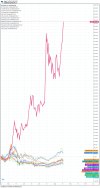 95449B55-FA80-425D-B3DE-707C5DE0EF71.jpeg246.4 KB · Views: 51
95449B55-FA80-425D-B3DE-707C5DE0EF71.jpeg246.4 KB · Views: 51 -
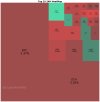 7545479B-65A0-467F-8344-FE88D9FC0A4D.jpeg56.9 KB · Views: 45
7545479B-65A0-467F-8344-FE88D9FC0A4D.jpeg56.9 KB · Views: 45
@iamthatis - came across this twitter thread yesterday detailing how the hack happened. I'm not going to pretend that I understand even a small part of the technical aspects of it (more like very big generalities for me in terms of understanding), but figured I'd post this here for you to look at for maybe a general understanding and any techy type person that wants to dig into it, etc.
If I understand it correctly, that's a pretty big 'OOPS!'
It's also one of the arguments against open source: it only works if the community is actively and attentively looking for holes and contributing fixes. If they aren't, hackers find the holes and exploit them much more easily.
Even then, the 'Jesus Syndrome' often prevents contributors from either presenting or defending bugs they find against the creators/founders/core programming group.
Alas, we are all just silly humans!
charlesfrith
A Disturbance in the Force
I have a modest amount of crypto because I don't trust the banks. Bitcoin has all the tell tale signs of deep state creation (the logo for example) but like the invention of the internet, crypto is a double edged sword. I'm using it for my purposes and I don't mind losing what I have invested.
Hey @iamthatis, try these links:I have no nuanced understanding of the crypto world. Is there any resource you or @Ryan can point me towards that would be able to help me out with this? Sort of like a 'Crypto for Dummies'?

Introduction To Cryptocurrency
A free course on cryptocurrencies for developers. Covers history, cryptographic foundations, networking, consensus, game theory, Bitcoin, Ethereum.

8 Best Sources to Study Blockchain Technology
Cointelegraph has compiled a list of top 8 sources where you can get necessary information about Blockchain technology.
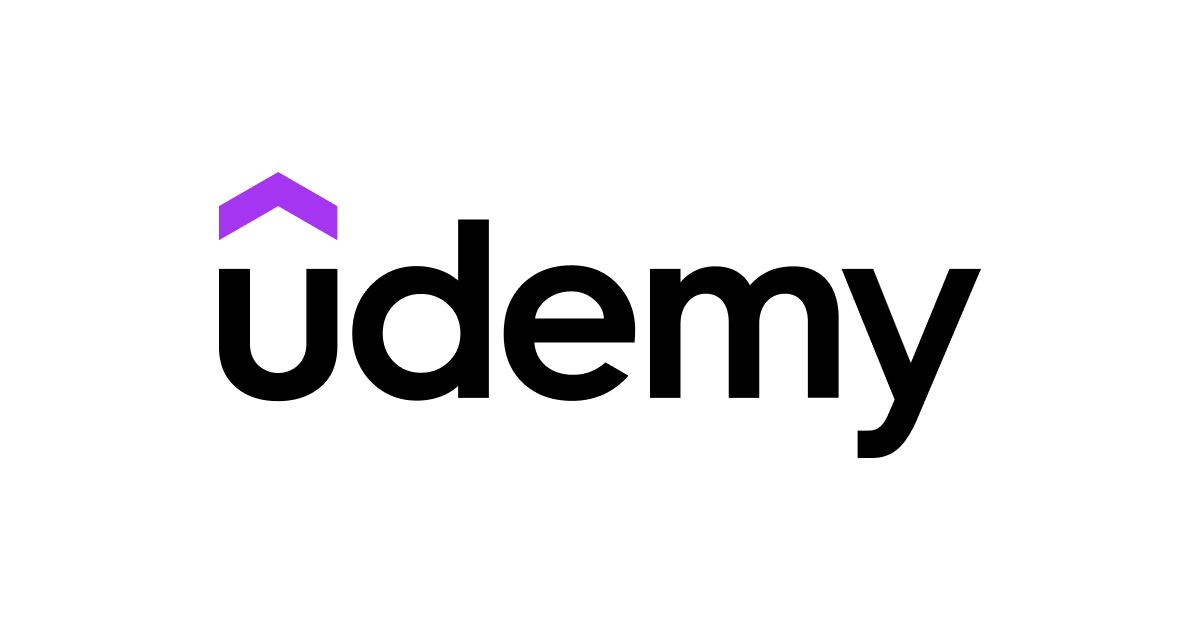
Top Blockchain Courses Online - Updated [August 2022]
Join a blockchain course on Udemy. Top rated instructors can show you how to utilize this programming technology behind cryptocurrency and DAPPs.

Blockchain and Cryptos explained for Non-Techies | Scottie's Tech.Info
Cryptocurrencies like Bitcoin are all the rage these days. All we hear is how Bitcoin has smashed another record high, cryptos are the future, don't miss this train, etc. The question is: How do you know what you're getting yourself into? Many people are talking of using their stimulus check to...
If you are looking for a more "markets and trading" approach, then these might be useful for you:

Binance Academy | Free Crypto & Blockchain Education
Master crypto, blockchain, and Web3 with free expert tutorials, videos, and courses from Binance Academy.
 academy.binance.com
academy.binance.com

Chapters Archive - CoinDesk
Leader in cryptocurrency, Bitcoin, Ethereum, XRP, blockchain, DeFi, digital finance and Web 3.0 news with analysis, video and live price updates.
In terms of social media, the biggest crypto communities are on Telegram, with Twitter the next largest platform.
Happy reading!
I saw this twitter thread by the CIO of Zilliqa, which is a fairly well established crypto. I'll likely print it out to digest it more fully.And how do you control this blockchain ‘net’ of Web 3.0? One means is likely to be the biggest voter for each blockchain via your holdings of each crypto blockchain in terms of governance and also to be the biggest holder of the governance tokens of each blockchain, if the blockchain has such a coin. TPTB are probably totally fine and may even desire that the system be fully decentralized, as long as they can still maintain control via governance via the vast wealth they could put into acquiring that control. So governance although seen as a strength of many people in crypto, could turn out to be a weakness in the future.
I'm not sure if ZIL can execute in terms of being the forerunner in this. This is what I kind of envisioned another crypto or cryptos really being a leader and monster in doing. But that is not the point of this post.
The point is that ZIL or whoever (or all of crypto) moving in this direction throws up some significant warning signs.
I'm not sure the people developing this in crypto understand exactly what they are building in terms of who is likely to own the commodification of people via crypto (ie - the human stock market from the picture of the first post of the twitter thread). But I think interests that help fund or provide assistance in this direction do know. The crypto builders and innovators see the decetralization and innovation along these lines to be a really good idea in terms of the long term prospects of going down this path to help people and the world, etc. Through the veneer of building a community to profit from supporting celebrities, as described in the twitter thread, and the infrastructure required for that, it could be the infrastructure could be being built where all people are eventually commodified in a human stock market in a digital fashion via crypto were 'they' own the human 'cattle' via the DAO and governance... who owns the DAO and governance could in essence own the people... Trillionaires are likely to move to own the DAO and governance once the infrastructure is built and battle tested. The good news is that it is nowhere close to coming to fruition as far as I can see.
Edit added: and this ownership could be implemented if/once all things and people are moved to a completely digital (even crypto) system.
Last edited:
bjorb
The Living Force
Keep an eye on Solona and Fantom.
Growth this month =
Solona= 283%
Fantom= 524%
I got in 2 weeks ago so I've nothing to complain about so far.
I think they are growing the fastest and have much more potential. Technically, I think they are just very well put together. But I'm not an expert.
Though, if you guys think otherwise please share.
Growth this month =
Solona= 283%
Fantom= 524%
I got in 2 weeks ago so I've nothing to complain about so far.
I think they are growing the fastest and have much more potential. Technically, I think they are just very well put together. But I'm not an expert.
Though, if you guys think otherwise please share.
Last edited:
The European Commission is considering a new registry to register all possessions of citizens. This should include not only properties in the form of real estate, land and shares, but also assets such as precious metals, crypto coins, jewelry, works of art, cars and boats. This is according to a new document entitled 'Feasibility Study for a European asset registry'.
According to the European Commission, such a registry is necessary to prevent tax evasion and money laundering. It gives the authorities more information to map out money flows. From the text of the proposal:
"The collection of data and the interconnection of registers is an important tool under EU law to speed up the access of competent authorities to financial information and facilitate cross-border cooperation. This project will explore different options for collecting information with a view to creating an asset register that can then be used for a future policy initiative.
It will look at how to analyze information from different sources on asset ownership (e.g., land registries, corporate registries, trust and foundation registries, central securities holding companies, etc.) and how to design, implement, and maintain an asset register. ) and what the design, scope and challenges of such a Union asset register might look like. It will also consider whether data on the ownership of other assets, such as crypto currencies, works of art, real estate and gold, can be included in the register."
Financial repression
Although only a proposal, this is a particularly worrying development. It gives governments even more insight into the assets of citizens, on top of the information they already collect. It is striking that the proposal only highlights the interests of governments, supervisors, banks and NGOs and does not take into account the interests of European citizens. Also, the proposal does not make clear why a more detailed registration of assets is necessary.
Under the guise of money laundering and terrorism, such a register further erodes the freedom and privacy of citizens. Governments use it as an excuse to exercise more control over their own population. There is therefore fierce criticism of the proposal from various quarters. According to German politician Markus Ferber, the European Commission is going beyond its remit. "These plans are totally disproportionate. The relationship between the citizen and the state reminds me of China, not of EU member states.
Control state
The German newspaper Die Welt concludes that with this register all holdings of gold and bitcoins will become traceable, while the Austrian newspaper Die Presse reminds of a chapter from Orwell 1984. According to the Austrian Kroner Zeitung, such a registration of assets is impractical and also very costly. According to the German magazine Focus, the EU wants to map the assets of all people down to the last cent:
"If this register were to come about, the consequences are obvious. For example, for politically disliked citizens - and this does not only include criminals - it will become much more difficult in the future to continue their activities. These may include investigative journalists or whistleblowers, for example, who are threatened with more targeted reprisals.
The control of money flows, investments and assets is contrary to human dignity. Under the guise of preventing money laundering, we are all being vetted. Now is the time for civil disobedience. People need to take to the streets, like the yellow shirts in France."
Asset mapping is another step in tightening controls on citizens. Earlier, the European Commission called for stricter supervision of crypto currency providers. It wants to register all crypto addresses so that anonymous transactions will end. Also this summer, the European Commission drafted a directive to prohibit transactions of more than €10,000 in cash throughout the European Union. A worrying development, even for savers who have nothing to hide.
Translated with www.DeepL.com/Translator (free version)
Last edited by a moderator:
Trending content
-
-
Thread 'Coronavirus Pandemic: Apocalypse Now! Or exaggerated scare story?'
- wanderingthomas
Replies: 30K -
